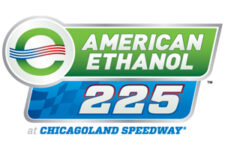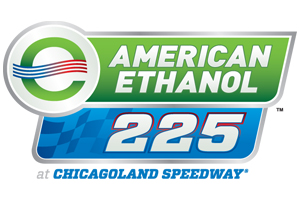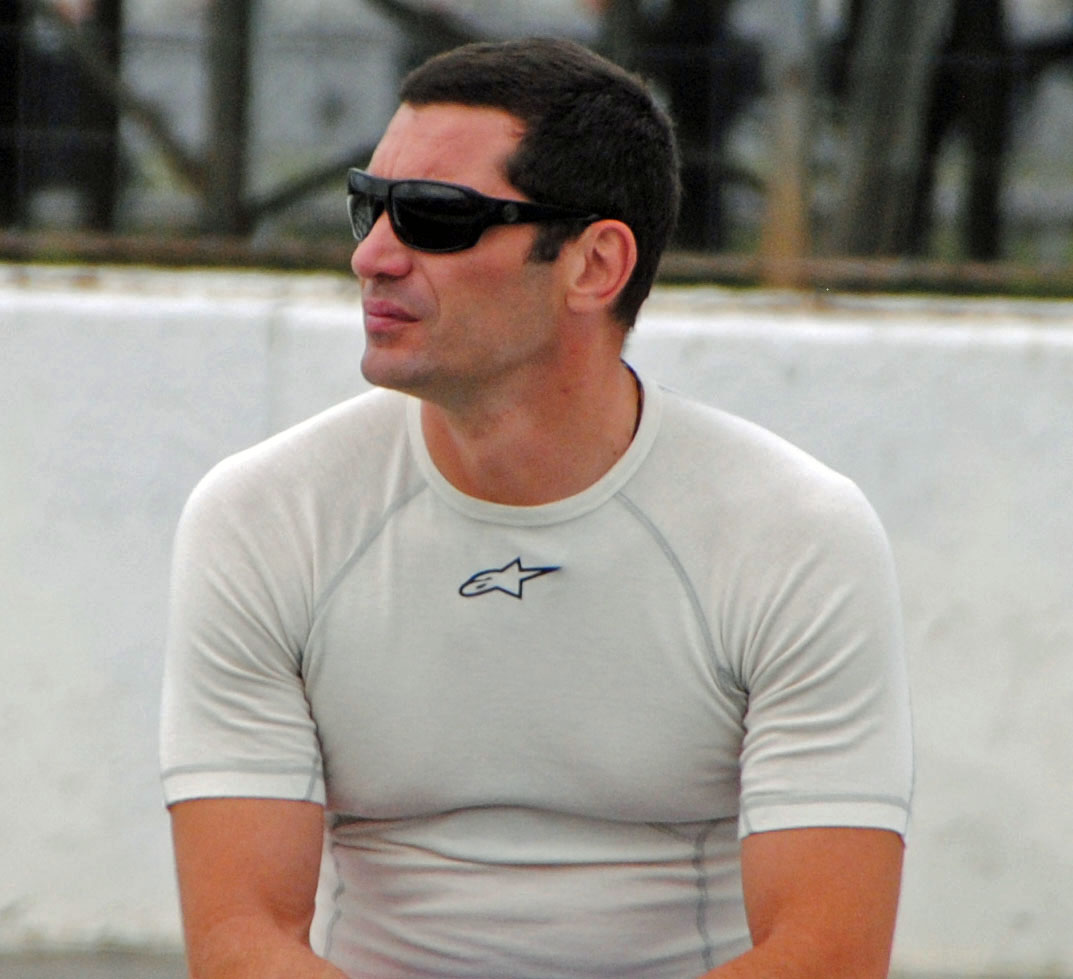 TOYOTA NASCAR Camping World Truck Series (NCWTS)
TOYOTA NASCAR Camping World Truck Series (NCWTS)
Todd Bodine, Timothy Peters and David Starr — Notes & Quotes
Chicagoland Speedway – July 20, 2012
TODD BODINE, No. 11 Toyota Tundra, Red Horse Racing How special is to make your 200th start in the Truck Series? “It’s pretty cool to be able to earn a living doing what you love to do, and it’s 200 in all three series. The longevity and actually having people that want you around for that long a period is pretty cool and I never thought when I drove my first race car in — when was it, 1983, Stafford Springs, Connecticut — that I would be at this point and having such a great career with a fair amount of success and a lot of friends and it’s been a great ride.”
What makes Chicagoland Speedway unique? “Everybody talks about the mile-and-a-halves all being the same — ‘D’ shaped, long, sweeping corners — and in that respect they are, but in just about every other aspect they’re different. Every race track has its own personality, has its own bumps, its own quirks, its own spots on the track that you get tight or you get loose, and Chicago is no different. There are different kinds of bumps. You can run different grooves and every one of the mile-and-a-halves have something that makes them unique to themselves. That’s probably the one reason as a driver we don’t get tired of them is because they are all different. They all drive a little different and they’re different — a lot of fun in their own way.
How have you adapted to changes in NASCAR throughout your career? “The sport has changed a lot. There’s no doubt about it. The technology and the things that we do behind the scenes are very different than when I started. When I started, I think my first team we had four full-time employees and we had two cars and three motors and worked out of a two-car garage. Now, it’s not even close to that. You have — heck, most teams have one engineer, one tire guy and the crew chief — I mean, you have specialized for every position, so those things have changed a lot. And the technology that the manufacturers have brought to the sport — usually it starts in the Cup Series and it will trickle down and it comes to the Nationwide and gets into the Truck Series, so we’re benefiting from all the technology that the Cup guys have and use. But, the one thing that hasn’t changed is sitting in that seat holding that steering wheel. It’s still about turning left and going as fast as you can go. And I think that’s one thing a guy like myself that grew up working on race cars and building race cars — it’s one reason we can still be competitive week in and week out is the understanding how to do that and do that with some success and do it consistently. For myself, I grew up working on race cars, building race cars. I crew chiefed them. I changed tires on pit road. I was the chassis specialist, so for myself in getting all this new technology that we have, I’ve been able to for the most part understand it and adapt to it and use it to my benefit with communication to the crew chief, communication to the engineers and all the other ways that we can use it to benefit the team. So, even though I am senior member around here, or one of the senior — (Ron) Hornaday’s actually got me beat for that — we still can do it. We can still adapt to it and understand it.”
Why do you have such a passion for helping young drivers? “When I started full-time in 1991 in the Busch Series, I was fortunate enough to have two brothers that had a lot of experience, a lot of wins racing in both divisions and they helped me a lot. There was no doubt. But, they couldn’t always be around to help me. When we would go to a race — it didn’t matter where it was — the one guy that always helped me, the one guy I knew I could go to and count on was Mark Martin. I could ask him any question about chassis, lines, how to drive — I could ask him anything and he would tell me a straight up answer and be honest with me and try to help me. A lot of guys — some guys I will say — won’t do that. They don’t want to help their competitor get better. Well, I’ve always looked at it as first I wanted to kind of pass that down — how Mark treated me and how Mark welcomed me and helped me get better. I always wanted to do that for the kids, but I wanted to do it because I want them to be a better driver because my philosophy has always been that you are only as good as the competitors you race against. So, if you can make your competition better and you can still beat them, well, you’ve accomplished a lot. I want those kids to go out there — I don’t want them to get in trouble, I want to help them. And, it is different in today’s world. You have got to perform, you’ve got to fulfill what you are supposed to do behind the wheel and if I could help a kid do that I’ll do that. I just always have taken a lot of satisfaction in helping the kids.”
Do you feel there are still drivers out there willing to help the up-and-coming drivers? “I hate to put it this way, but it is the older generation. It is our senior generation in this sport that still understands that aspect and respects that part of the sport. In today’s world, it’s such a competitive business not only on the race track but off the track for sponsorships, for media exposure. Everything we do is about competition and I think this generation maybe isn’t as willing to go that extra mile to help their competitor or their neighbor. I think that’s one thing that our sport lacks now.”
TODD BODINE, No. 11 Toyota Tundra, Red Horse Racing (continued) What does your team owner Tom DeLoach bring to the race team that makes it so successful? “I’ve known Tom (DeLoach, Red Horse Racing owner) for — we’ve been friends for probably four or five years now. We are always goofing around in the garage and, ‘When are you going to come and drive for me?’ I said, ‘Well, as soon as I need a job I’ll come see you.’ Well, last fall that happened and the first place I went was three trailers down to see Tom. I said, ‘Tom, I don’t have a job for next year.’ He said, ‘Yeah you do. We’re going to have you over here at Red Horse. We’re going to make this work.’ I said, ‘Okay.’ That kind of commitment, I knew that was somewhere I wanted to be. Like, Tim (Peters) said, the type of person Tom is — when you get to know him it’s absolutely incredible the ethical manner that he runs his race team and conducts his life in general. You can ask him the toughest question in the world and you can bet your bottom dollar he’s telling you the truth with his answer. He’s not going to sugarcoat it, he’s going to tell you the truth and it takes a lot in this sport today to be that way. And, Timmy’s right, he’s got such compassion for his employees and his commitment to his team is absolutely incredible. To say that we’ve been underfunded all year is an understatement and Tom has stepped up to make sure that our teams have everything they need every single week to go out and be competitive and win races. That kind of commitment you just don’t find in this day and age. I know his wife Myra is standing right there egging him on to make sure he’s doing all of those things because she loves the sport and she loves her team just as much as Tom does. As an outsider coming into this for the first year, it’s an incredible feeling to know that you have that kind of commitment out of a couple of owners that really just have been acquaintances for the last few years and now they’ve become very good friends in a short period of time.”
What would it mean to the Truck Series if road course races are put back on the schedule next year? “The one thing that I think road racing for the Truck Series is good is the Truck Series is definitely a feeder division. It’s a place where a young kid can come, can figure out how to drive these things. We run a lot of mile-and-a-halves, so he can figure out the mile-and-a-halves, where most of them have run short tracks all of their life. So, it’s a great place to learn. And, it’s a great feeder series for Nationwide and hopefully eventually the Cup Series. If we’re not running road courses it makes the car owner in Nationwide or the Cup Series maybe think twice because the driver he’s looking at in the Trucks hasn’t run road courses — doesn’t have that experience on that. So, for these guys to go and get that experience, understand it and get a better feel for it, it maybe makes those owners look a little differently at the Truck racers and how good a job that they can do for them in either Nationwide or Cup. So, I think it’s a great place to get some experience for these young kids and figure out if they can do it to move up to the next series.”
TIMOTHY PETERS, No. 17 Toyota Tundra, Red Horse Racing What did you do with the trophy after your Iowa win? “Been a good week so far. What an awesome way to come off a weekend with the way we ran at Iowa. Wednesday my wife and I found out that we’re having a baby boy and we had our little victory lane celebration there at the shop yesterday, so I haven’t got the trophy home yet. But, I’ve picked out a great spot for it and it’s next to an electrical outlet, so I can go in there and play with the light switch.”
Is Chicago similar to any other tracks? “I will say if you stand in the middle of the garage here and at Kansas, you don’t know where you’re at. I remember coming here testing when I had my own team and Todd (Bodine) and I were friends, but just kind of getting really close. I remember — he didn’t have to do this, this is a pretty cool Todd story — getting down and I see him walking over and I was like, ‘Hmm.’ So he drops down and he says, ‘Look, this place is about big arcs. You’ve got the arc down, but you’re carrying it too far.’ He said, ‘Bring it down just a little bit,’ and I just thought that was pretty cool. As good as Todd is on mile-and- half stuff and, I don’t know the word I’m looking for here, but not knowing me that well, it was just cool to come over and offer that advice. This place is different than anywhere you go to. Back straightaway really isn’t straight. It seems like turns three and four are ‘Achilles’ heels’ for me anyways. Cool place.”
What does team owner Tom DeLoach bring to the race team that makes it so successful? “I’ve learned a lot about character from Tom (DeLoach, Red Horse Racing owner). He is definitely successful, but he’s humble about it. He cares about his race team and he cares about people and I can take a lot from that. Each year I just get blown away of how that grows. You look at the guys in the race shop and they are the same guys — a few of them — that were there when it was Clean Line (Motorsports) before it became Red Horse so he cares about his people.”
DAVID STARR, No. 81 ZACHRY Toyota Tundra, Arrington Racing What does it mean to be making your 300th Camping World Truck Series start this weekend? “It’s an honor and I’m excited. I really didn’t realize I was at 300 until last week when Ray Dunlap came up to me before the race started and said, ‘Hey, congratulations next week on your 300th start.’ And, I said, ‘It’s 300?’ I didn’t even really know. That being said, ever since I was three years old going to the race track with my father, this is what I’ve always wanted to do in life. Life is pretty good. I feel like I’ve been blessed and privileged and honored to be a part of such a great sport.”
How would you compare your milestone of 300 starts to Todd Bodine’s of 200 starts in all three NASCAR series? “I think what Todd (Bodine) has accomplished — 200 in all three national major series — that’s just incredible. I don’t believe anyone else has accomplished that. Three hundred in the Truck Series, I feel blessed and honored — that’s pretty cool. It really doesn’t compare to 200 starts in the NASCAR Camping World Truck Series, in the NASCAR Nationwide Series and the NASCAR Sprint Cup Series. I wouldn’t say — that’s night and day difference. That’s a major, major milestone for Todd Bodine. I remember racing dirt Late Models and racing everything I could race. I always wanted to get home wherever I was racing to watch the Cup race on Sunday and I was usually watching Todd Bodine out there. This milestone compared to Todd’s, I think it’s night and day difference. To accomplish that goal — that’s a major accomplishment and I think I heard or read that I don’t think any other driver in our sport has that. That says a lot about his longevity, his competitiveness — he can win any given weekend no matter if he’s in a Nationwide car, a Sprint Cup car or a truck. It doesn’t compare.”
What would it mean to become the all-time Camping World Truck Series starts leader? “I hadn’t really thought of it. I would love to be the all-time leader, but I would really love to just have the budget to do it like I once did and have the financing behind me to be able to win races again. Being the all-time leader with starts would be a tremendous goal. Rick Crawford has it at 331.”
What are the track conditions like and what is the curve in the backstretch like at full speed? “It’s awesome. Every body says, ‘Hey, what’s your favorite — what race tracks do you like?’ I always say, ‘Where are we going next?’ Chicagoland is a great track. I love it because it’s challenging. Its got character to it. It’s a mile-and-a-half track, it’s different from the other ones because the back straightaway is not straight — it curves the whole time. It’s pretty cool. As you enter turn one, there’s two or three grooves you can use throughout the race. There’s some bumps over there on turn one that create a challenge for you as a driver and the crew chief and the engineer to try to figure out how to get through them. Also, in turns three and four, there’s multi-grooves over there. The fast way around here is bumpy and if you can get your truck to travel through the bumps without affecting it, it’s awesome. It’s a great race track and having that characteristic to it, where it’s not just perfectly smooth all the way around it, makes it a lot of fun. You can pretty much run wide-open in the trucks — every lap I’ve made, I’ve ran wide open. I’d hit a bump and the front end is a little rigid, so it would kind of pick up the front tires and make us tight, then we’d work on it and we’d go back out there and we’d hit the bumps again and when we’d land, we’re wide-open now and we’d go loose. It creates a challenge to make that balance just perfect when you’re traveling through the bumps. There is no straightaway here at Chicagoland.”
Do you think Chicagoland would benefit from a repave? “It’s kind of like Atlanta Motor Speedway — if it’s not broke, don’t fix it. It looks wore out and it’s bumpy and it has a lot of dips in it, but it makes the racing really good. It’s challenging. When you have to come off the gas pedal, and the trucks with the restrictor plates we run, a lot of times we can run wide-open, but the race tracks that have the characteristics with the bumps, it just makes it more challenging and sometimes you have to come off the gas pedal. It makes the racing better. If you have a race track that the surface is perfect 100-percent, it’s just smooth all the way around, I think personally it takes a little bit of the racing — I don’t think the racing is as good. I like the race tracks that have character to it. I think it creates better racing myself, personally. I love this track and it doesn’t need to be repaved. It’s fun, it’s challenging — a great track.”









